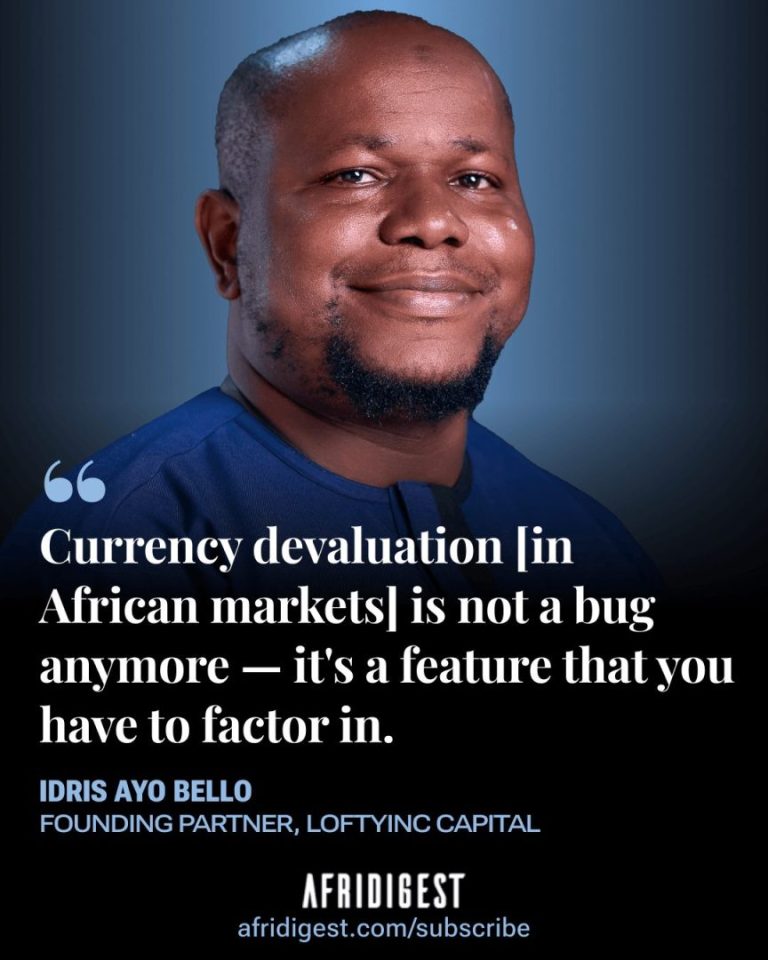Currency devaluation in Africa isn’t a problem to solve — it’s a feature to work with.
That’s LoftyInc Capital Founding Partner Idris Ayodeji Bello challenging conventional wisdom on investing across African markets.

Over the last fifteen or so years, Bello has backed some of Africa’s biggest success stories — including unicorns Flutterwave, Andela, and Wave Mobile Money — through multiple currency crises.
Where many investors view volatility in places like Nigeria, Egypt, and Ghana as dealbreakers, Bello sees a competitive advantage for those who know how to navigate the environment.
“[Africa] requires investors who understand the ecosystems and are able to hedge and diversify,” he says.
He points to three specific approaches for investing in the continent’s startups:
- Geographic diversification — Spreading investments to balance currency volatility in certain markets against stability in others (e.g., Francophone Africa where the CFA franc is pegged to the Euro)
- Sector diversification — Focusing on business models and sectors that earn non-local revenue as a natural hedge
- Founder selection — Choosing entrepreneurs who understand the importance of “scaling faster” than devaluation cycles and can execute successfully
The stakes are real: Nigeria’s naira fell 55% in 2023, for example, meaning startups needed to grow revenues by 2.2x just to stay flat in dollar terms.
Companies like Termii Group and Smile ID responded by expanding to CFA franc markets, while other like IrokoTV pivoted to earn 89% of revenues outside Nigeria.
Bello’s philosophy: “It’s beyond our job as investors to solve the devaluation problem. It’s really about: how do we hedge against it?”
This ‘bug-to-feature’ mindset shift — from viewing fluctuating currencies as an outsized obstacle to treating them as yet another market feature — exemplifies how sophisticated African VCs are building resilient portfolios despite (or perhaps because of) the continent’s economic volatility.
What’s your take?
- Is treating currency devaluation as a “feature not a bug” pragmatic realism or does it risk normalizing the abnormal?
- Should founders in African markets prioritize earning some percentage of company revenues in hard currency? If so, what implications does that have for solving local problems paid for in local currency?
- If currency devaluation becomes a permanent “feature” that investors and entrepreneurs learn to accept and navigate, does that reduce pressure on governments to seek stability?





Share: